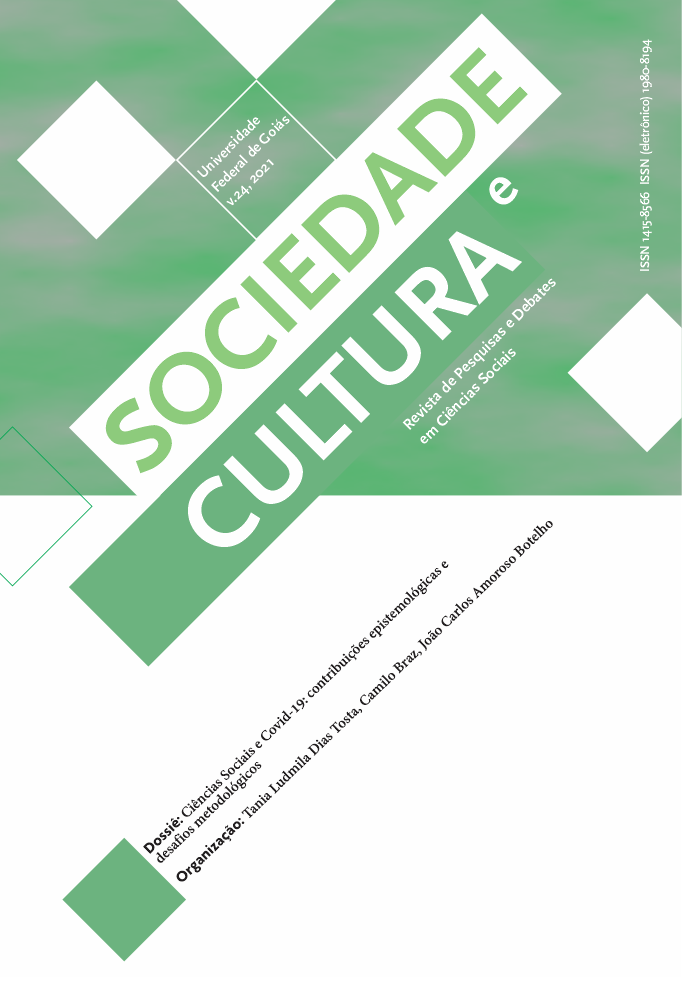“Here we know if people isolate themselves”: (anti)anonymity, care and power in mid-sized and small towns in times of COVID-19
DOI:
https://doi.org/10.5216/sec.v24.65950Abstract
The present paper aims to investigate the ways in which the coronavirus disease 2019 (COVID-19) pandemic has been managed in mid-sized and small agglomerations in the province of Buenos Aires (Argentina) where ‘face-to-face’ relationships are predominant. Our ethnographic material draws on interviews with inhabitants of rural
districts in Buenos Aires where we have been conducting fieldwork –
face-to-face and now also non-face-to-face – for eight years, by means of
local newspaper coverage, as well as audios and memes shared on social
media and mobile phone instant messaging services. Having the analysis of this ethnographic corpus as a basis, we present herein two hypotheses. First that, beyond the much talked about radical changes caused by the pandemic, the ways of managing it as a social issue at a daily life level, at east in the agglomeration sizes discussed herein, have been organized into pre-existing mechanisms, such as the circulation of gossip and rumors – frequently escalating into scandal, relying on social media as a means. Second that, at the same time, not everything has been an updated continuity of previous social repertoires; throughout the pandemic, we have observed that situations involving power differentials that were previously ‘unspeakable’ entered the whistleblowing sphere; also, that new repertoires have emerged – such as ‘self-care’ or ‘community care’ – as mobilized to justify or even require from the State the circulation of personal information of real or potential patients, since it is emically understood that knowing who is infected can prevent virus transmission. As we will see, in these particular contexts, the COVID-19 has opened new interstices – or, at least, the social requirement for new connections – between concepts of person more or less focused on the relational sphere or on the individual, as ways of caring for both community health and personal reputations.
Downloads
Downloads
Published
How to Cite
Issue
Section
License
Copyright (c) 2021 Sociedade e Cultura

This work is licensed under a Creative Commons Attribution 4.0 International License.
Authors who publish in this journal agree to the following terms:
- Authors retain the copyright and grant the journal the right of first publication, the work being simultaneously licensed under the Creative Commons Attribution License, which allows the sharing of the work with acknowledgment of authorship and of the initial publication in this journal;
- Authors are authorized to enter into additional contracts separately, for non-exclusive distribution of the version of the work published in this journal (eg, publishing in an institutional repository or as a book chapter), with acknowledgment of authorship and of the initial publication in this journal;
- Authors are allowed and encouraged to post and distribute their work online (eg, in institutional repositories or on their personal page) at any point before or during the editorial process, as this can bring productive change as well as increases the impact and the citation of the published work (see O Efeito do Acesso Livre).



